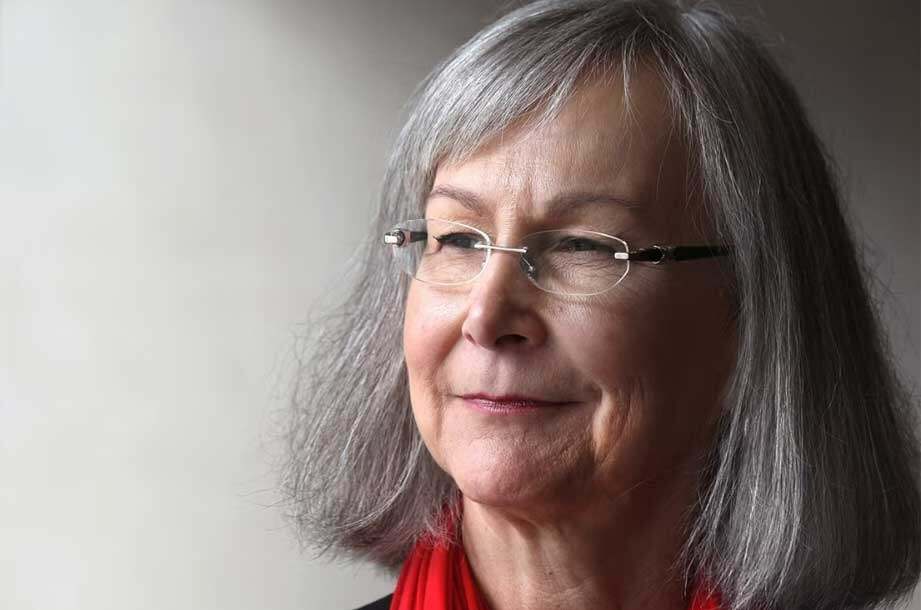As someone who served as chief commissioner of the National Inquiry into Missing and Murdered Indigenous Women and Girls, retired British Columbia judge Marion Buller is an expert on having difficult conversations.


And, she says, there is one thing that people can do to make them easier.
“We’ve forgotten how to really listen,” says Buller, who made history in 1994 by becoming the first Indigenous female judge in B.C. and is currently the chancellor of the University of Victoria.
“We’ve forgotten to have open minds and how to recognize each other’s humanity. We need to be reclaiming our humanity.”
Buller is sharing her experiences at University of Toronto Mississauga at a Jan. 20 event called “Thinking Out Loud Together,” a discussion on fostering understanding. The talk also includes Alexandra Gillespie, U of T vice-president and U of T Mississauga principal, and Randy Boyagoda, U of T’s provostial adviser on civil discourse.
“There is never just one opinion, and that’s a good thing,” says Buller. “We can disagree, but we have to listen respectfully to the other person.”
A member of the Mistawasis Nêhiyawak, a Cree First Nation in Saskatchewan, Buller says her family prized intellectual curiosity.
“Questioning the status quo was always encouraged,” she says. “It was, ‘Let’s think about that and go to the library and find out.’”
Buller, who helped found an Aboriginal Family Healing Court in 2016, says exposure to media coverage of the Vietnam War in the 1960s also helped spark her interest in discourse.
“We referred to the American nightly news as ‘the body count,’” she recalls. “It brought conflicts, protests, inequality, feminism into our living rooms. We used to say, ‘If you weren’t part of the solution, you were part of the problem.’ It was an interesting time to grow up.”
The world has changed though, she says, and with it so has our ability to judge the credibility of sources.
“As a society, we receive our news in so many different ways now: it’s headlines on social media, who’s on Colbert tonight, and opinion and fact have gone like this,” she says, intertwining her fingers.
“Fear plays such a pivotal role in people taking firm positions without reflecting on what they are seeing and hearing,” she says. “That impacts relationships at both the community and individual levels.”
She cites the COVID lockdown as an example of how one topic can generate disparate reactions.
“Some looked after neighbours that maybe we’ve never really paid attention to before, because fear of COVID united us,” Buller says. “But ignorance also really divided a lot of us. I still have in my head images of people with grocery baskets full of toilet paper. We forgot about humanity and it became a net-zero game where your gain must come at my loss.”
Buller honed her own discourse skills as a civil and criminal lawyer from 1988 to 1994. Her law career began in the early days of the Canadian Charter of Rights and Freedoms, and there were a lot of challenging debates in courtrooms across the country.
A former president of the Indigenous Bar Association, Buller still practises law part-time and says she much prefers being busy to slowing down.
“Eventually I’ll have to retire, I guess,” she says. “I’m very good at retiring – I’ve done it several times.”
As the chancellor of UVic, she now surrounds herself with education at the same university where she earned her law degree in 1987.
“I am really energized by students and their intellectual curiosity,” says Buller, a Member of the Order of Canada. “They are so open to learning. I am so excited that they will be our leaders of tomorrow. They are so brilliant.”
As for her own long list of achievements, there is one that particularly pleases Buller: When she retired as a judge, she received a book of feedback from lawyers and litigants she had presided over.
“One comment, for which I was very grateful, was that I was fair. Even if they walked away ‘losing’ their cases, they felt they were heard and they understood why they lost or won,” she says. “There is no higher compliment for me. If I left with that legacy, I’m happy. I did my job.”





































